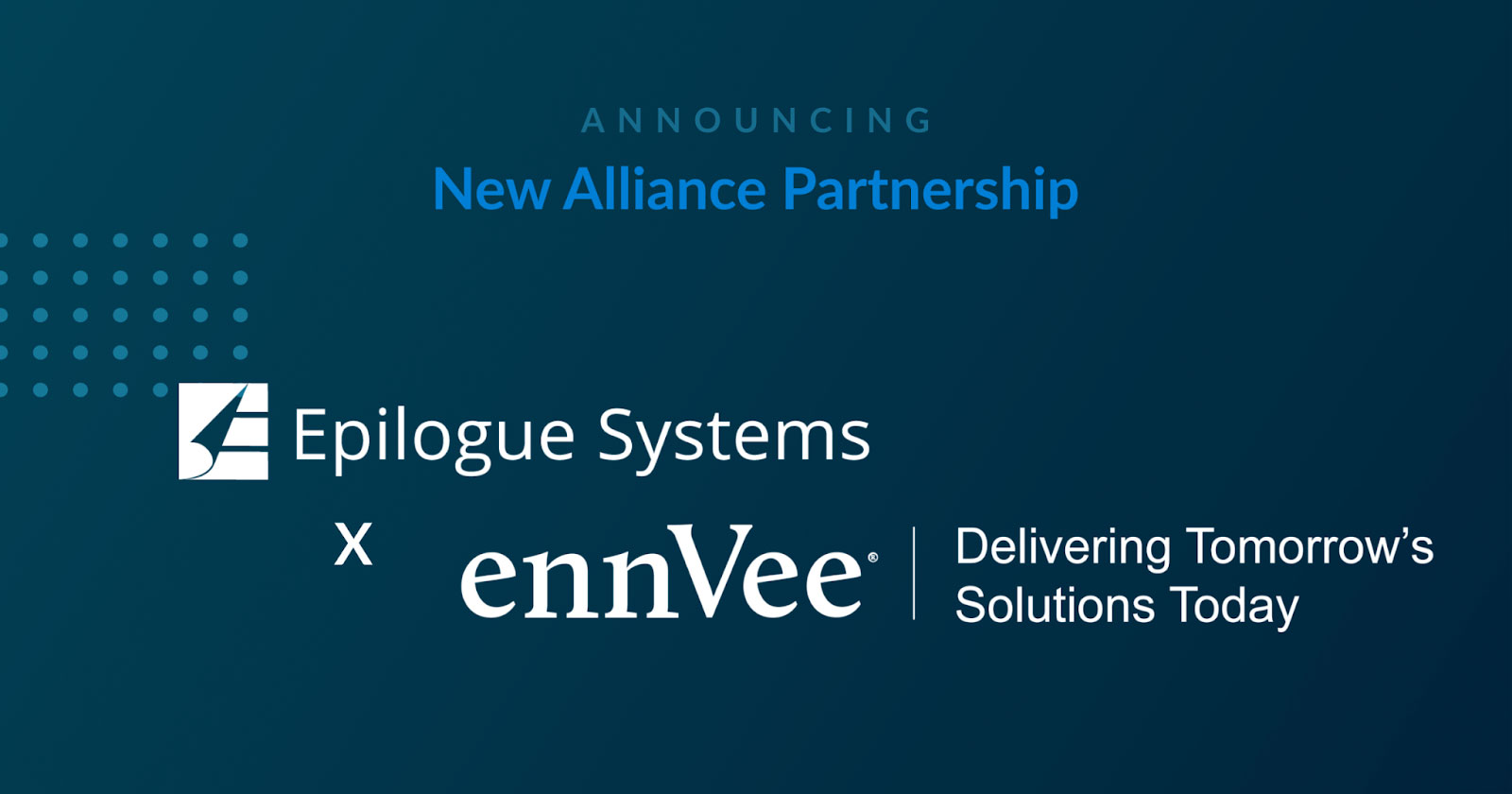Building a solid team dynamic is crucial for any organization’s success. A cohesive, motivated team can achieve incredible things, while one plagued by dysfunction can quickly fall apart. Unfortunately, even the best managers can make mistakes that unintentionally hinder team dynamics.
This blog will explore the top 8 mistakes managers make regarding team dynamics and offer solutions to help you avoid these pitfalls.
Note to reader: Epilogue provides a digital adoption platform, Epilogue Opus, that makes learning and using complex enterprise applications easy. While this may not seem to relate to team dynamics, employees who are proficient and effective in using your critical applications certainly doesn’t hurt.

Top 8 Mistakes Managers Make When It Comes to Team Dynamics:
1. Underestimating the Importance of Clear Communication
- Problem:
Clear communication within a team is the linchpin of successful project execution. However, managers often fall into the trap of assuming that their instructions or messages have been understood precisely as intended. This assumption can lead to significant discrepancies between expected outcomes and actual results, creating confusion, delays, and inefficiencies in project workflows.
The root of this issue lies in team members’ diverse backgrounds, skill sets, and understanding levels, which can lead to varied interpretations of the same information. When communication is unclear, or assumptions are made without verification, it compromises the team’s ability to execute tasks cohesively and meet deadlines effectively.
- Solution:
The key to overcoming these challenges lies in implementing a strategy that ensures messages are conveyed clearly, understood, and actionable. This involves breaking down complex information into digestible, straightforward tasks, and providing comprehensive guides for complex processes. Additionally, reinforcing communication with visual aids, step-by-step instructions, and accessible support materials can significantly enhance understanding and retention among team members.
- How Opus Can Help:
| Epilogue Opus offers an innovative solution clearly communicating how application processes are to be exectued. It enables managers to create, manage, and deliver in-application guides and tutorials tailored to their teams’ specific needs. These guides can be used to walk team members through new processes, software, or tasks, ensuring everyone has access to the same information presented in an easy-to-understand format. By offering contextual help when it’s required, Opus eliminates the guesswork for team members, ensuring they understand their tasks and how to complete them efficiently. |
2. Ignoring the Need for Regular Feedback

- Problem:
Feedback is a fundamental element of personal and professional growth, serving as a mirror reflecting the strengths and areas for improvement of team members. However, managers sometimes overlook the importance of providing regular, constructive feedback. This oversight can make team members feel undervalued and unmotivated, as they lack understanding of their performance and how it aligns with team goals. Without timely feedback, employees are left guessing about their contributions and may repeat mistakes, hindering their growth and the team’s progress.
- Solution:
Addressing this issue requires a structured approach to feedback that is both regular and meaningful. Managers should create an environment where feedback is part of the team’s culture, ensuring it is specific, actionable, and, most importantly, continuous. This involves setting clear expectations, celebrating successes, and addressing areas for improvement in a way that fosters learning and development. Incorporating feedback into regular one-on-one meetings, performance reviews, and even informal discussions can significantly impact team dynamics and individual motivation.
- How Opus Can Help:
| Opus in-application guidance capabilities enable managers to promptly address any identified issues by creating custom tutorials or guides. This serves as immediate feedback and empowers team members to improve their skills actively, fostering a culture of continuous learning and development within the team. |
3. Overlooking the Power of Professional Development

- Problem:
Managers who fail to prioritize or invest in their team members’ growth opportunities overlook a crucial aspect of leadership. This oversight can lead to stagnation, decreased employee engagement, and a workforce that may fall behind current industry standards. When team members feel their professional growth is neglected, their motivation and loyalty to the organization can wane, leading to decreased productivity and potentially higher turnover rates.
- Solution:
Addressing this challenge involves creating and fostering an environment where learning and development are integral to the organizational culture. Managers should encourage and facilitate access to training programs, workshops, and seminars that align with both the individual’s career goals and the organization’s objectives.
Moreover, setting up mentorship programs or continuous learning paths can significantly contribute to an individual’s professional growth. It’s also vital to integrate professional development plans into performance reviews, making growth opportunities a regular part of the dialogue between managers and their team members.
- How Opus Can Help:
| By facilitating the creation of custom guides and tutorials, Opus enables managers to support ongoing professional development initiatives, ensuring that employees have the resources they need to advance their skills continuously. This approach not only enhances individual competence but also drives overall team performance and innovation. |
4. Not Tailoring Communication to Individual Learning Styles

- Problem:
A one-size-fits-all approach to communication and training can lead to disengagement and misunderstanding among team members. People have varied learning styles—some may prefer visual aids, while others benefit more from hands-on experience or written instructions. Failure to acknowledge and adapt to these differences can hinder the effectiveness of communication and learning initiatives, potentially leaving some team members behind.
- Solution:
The solution lies in adopting a more flexible and inclusive approach to communication and training. Managers should strive to understand the unique learning preferences of each team member and adapt their methods accordingly. This could mean providing information in multiple formats, offering additional resources for those who may need them, and encouraging feedback to continuously improve the learning experience. Implementing varied communication strategies ensures that all team members can absorb and apply information effectively, enhancing team cohesion and productivity.
- How Opus Can Help:
| Opus is ideally suited to address the diverse learning needs of a team. Opus’s ability to offer contextual help means that team members receive guidance exactly when they need it, in a format that is most useful to them. Opus recognizes that application users can have different preferences in how they wish to absorb process information. There are personal learning style preferences (watch, reach, do) as well as situational preferences based on the process and their degree of familiarity with it. Opus automatically creates, from a single recording session, a variety of output types such as walk throughs (we call our Follow Me’s), simulations (watch, try, test), job aids, and books..All these outputs are delivered in-application and contextually to the user and many can be downloaded for user elsewhere. Opus establishes a fluid and dynamic experience, accommodating different learning styles within the same team. This just-in-time support system enhances learning outcomes and ensures that all team members can perform at their best, regardless of their preferred learning style. |
5. Neglecting Team Morale and Culture
- Problem:
Team morale and culture are critical components of a successful and vibrant workplace. However, these aspects can sometimes be overlooked by managers focused solely on productivity and deadlines. A negative or toxic team culture can lead to disengagement, conflict, and a decline in overall team performance. When team members do not feel valued or part of a cohesive group, their commitment to the organization and their willingness to go above and beyond can significantly diminish.
- Solution:
Creating a positive team culture requires intentional effort and strategies aimed at fostering respect, inclusion, and collaboration among team members. Managers should prioritize team-building activities, open communication, and opportunities for social interaction to strengthen team bonds. Acknowledging and celebrating team achievements, both big and small, can also enhance morale and foster a sense of belonging and pride in the team’s work.
- How Opus Can Help:
| Opus can play a vital role in building and maintaining a positive team culture by facilitating collaboration and shared learning experiences. Its features allow for the creation of shared guides and tutorials, encouraging team members to contribute to the collective knowledge base. This not only helps in distributing knowledge evenly across the team but also promotes a culture of learning and mutual support. |
6. Overloading Team Members with Information
- Problem:
In an era where information is abundant, managers often inadvertently overwhelm their team members with too much data, detailed reports, and complex instructions. This information overload can lead to confusion, reduced productivity, and decision paralysis. Team members might struggle to prioritize tasks or spend excessive time sifting through data to find what they need, ultimately affecting their performance and the team’s ability to meet deadlines.
- Solution:
To mitigate the issue of information overload, managers must adopt a more strategic approach to communication and information dissemination. This involves prioritizing and curating content to ensure that team members receive only the most relevant and necessary information. Simplifying complex information into actionable insights and breaking down large projects into manageable tasks can also help team members focus on what’s important without feeling overwhelmed.
- How Opus Can Help:
| Opus is an invaluable tool in combating information overload by enabling the creation of concise, targeted, and easily digestible in-application guides and tutorials. Instead of bombarding team members with extensive documentation or emails, Opus provides step-by-step instructions directly within the software they are using. This approach ensures that information is relevant and accessible right at the moment it’s needed, significantly reducing the cognitive load on employees and enhancing their ability to focus and execute tasks efficiently. |
7. Failing to Address Software Adoption Barriers

- Problem:
Adopting new software can be a significant challenge for teams, especially when the benefits and functionalities of the software are not immediately apparent. Resistance to change, lack of understanding, and fear of the unknown can lead to low adoption rates, hindering the team’s potential to improve efficiency and productivity. Managers who fail to recognize and address these barriers may find their teams stuck in inefficient workflows, unable to leverage the full capabilities of new technologies.
- Solution:
Overcoming software adoption barriers requires a proactive approach that includes thorough training, clear communication of benefits, and ongoing support. Managers need to identify the specific concerns and challenges their team members face and address these issues directly. Providing ample opportunities for hands-on training and demonstrating the tangible benefits of the new software can also help ease the transition and encourage adoption.
- How Opus Can Help:
| By reducing the learning curve and making software easier to navigate, Opus can significantly increase adoption rates and ensure that team members feel confident and competent in using new technologies. |
8. Ignoring the Importance of an Efficient Onboarding Process
- Problem:
The onboarding process is critical in setting new team members up for success, yet it is often overlooked or rushed. A poorly structured onboarding experience can lead to confusion, frustration, and a longer time to productivity. New employees might struggle to understand their roles, the tools they need to use, or how to navigate the organizational culture, impacting their confidence and engagement from the start.
- Solution:
An effective onboarding process should be comprehensive, engaging, and tailored to the needs of new hires. This involves providing clear information about the organization, their role, and expectations, as well as offering detailed training on the tools and systems they will be using. Establishing a mentorship program or buddy system can also help new employees acclimate more quickly, providing them with a go-to resource for questions and support.
- How Opus Can Help:
| Opus significantly streamlines the onboarding process by integrating step-by-step guides and tutorials directly into the software that new hires will use. This approach reduces the learning curve associated with new tools and processes, allowing new team members to become productive more quickly. By providing contextual help and support when and where it’s needed, Opus ensures that new employees have a positive initial experience, setting the stage for long-term engagement and success within the team. |





